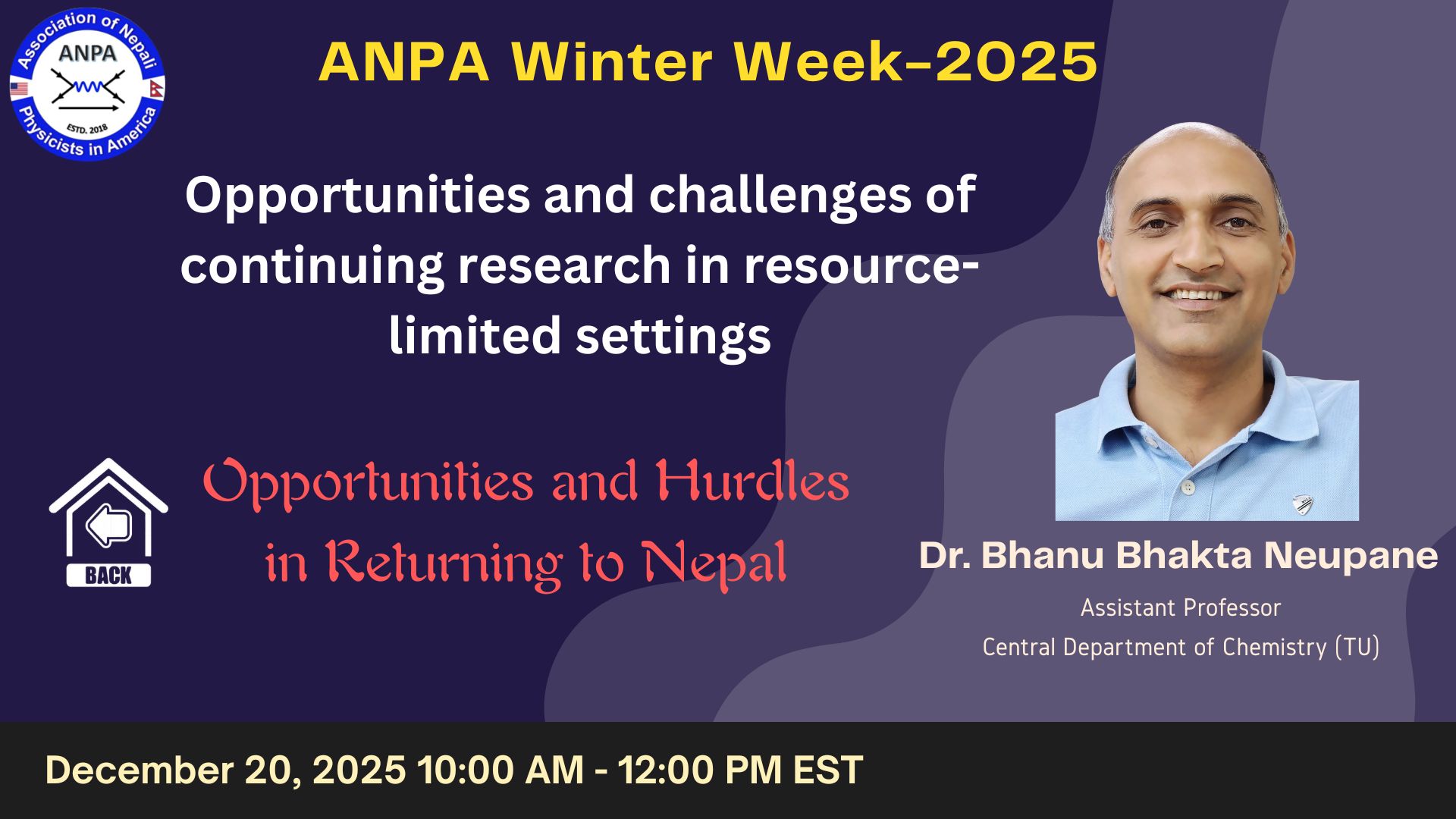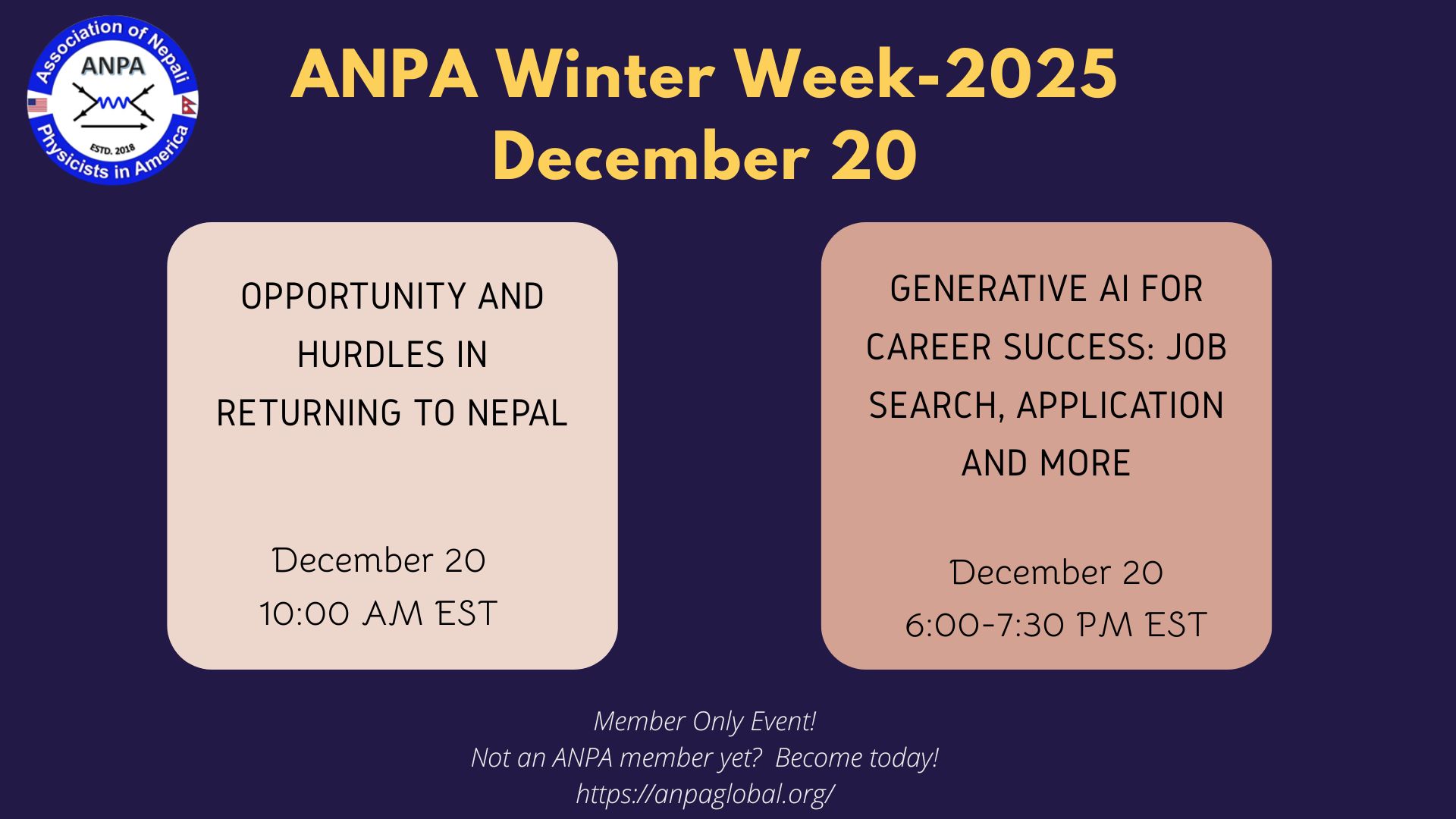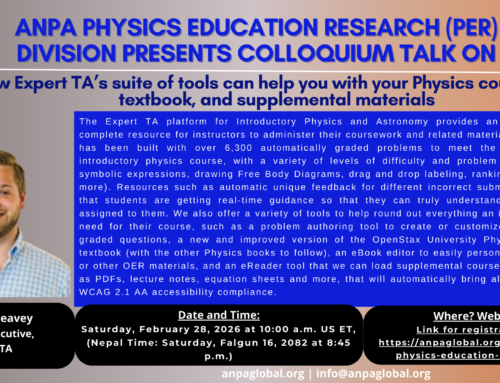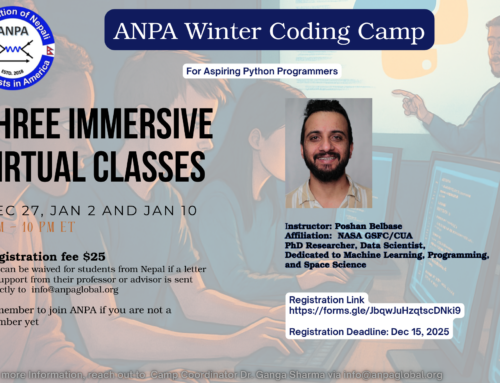Session I. Using Generative AI for career success : Job search & Applications
The professional world is undergoing a seismic shift with the advancement to competitive generative AI models and Agentic AI.
With this regard, ANPA is pleased to dedicate this workshop session focusing on how to use AI model wisely on professional development.

Shovit Bhari is a distinguished technology leader with a strong foundation in physics and a proven track record of embracing emerging technologies. Having transitioned from a physics lecture demonstration expert, he successfully expanded his expertise into Data Science, Machine Learning, Artificial Intelligence, and Quantum Computing during the pandemic lockdown. This strategic career pivot led him to join IBM in 2022 as a Data Science and ML Specialist, where he played a key role in helping organizations address their Data and AI challenges. Currently, he leads a team of technologists, driving innovation and growth by harnessing the power of cloud, automation, storage, quantum, and AI to deliver cutting-edge solutions to enterprises.
Attendees will get the chance to have 1-on-1, 10 minutes chat with experts to evaluate their resume. Please fill up this google form to secure your seat by Dec 13, 11:59 PM EST.
Please be notified, only ANPA members are qualified for this session. Join or renew your membership today,
Session II. Opportunities and Hurdles in Returning to Nepal
This session is dedicated to everyone living overseas who is considering returning home, as well as to those curious about the lifestyle of returnees.
Join us as three returnees share their personal journeys, experiences, and insights about life after moving back.

Hemu Kharel Kafle, PhD is a scientist at the Kathmandu Institute of Applied Sciences (KIAS) and Head at the Center for Water and Atmospheric Research within it. She graduated as an Environmentalist from the Ben-Gurion University (Israel) and obtained her PhD in Remote Sensing from the Nagoya University(Japan). Dr. Kafle’s research interest is in the extreme climatic condition like drought and desertification and its impact on agriculture and water resources. She has also been working on air and soil pollution of Kathmandu valley. Her post-doctoral research at Weizmann Institute of Science (Israel) focused mainly on afforested forest at the extreme climatic condition. Her research career thus far has resulted in several peer-reviewed publications with 10 of them as a lead author in high-impact journals.
Felicitated by The World Academy of Science (TWAS) as Young Scientist in 2014, she was one of the first women to receive the Early Career Women Scientist fellowship in 2018.Currently, she is also working on commercializing her research products, “Low-cost automatic weather station”, build by her research team at KIAS, Nepal and “Nano-Pad”, (Body warming device) developed in Kathmandu University. Dr. Kafle is also passionate about public engagement with science and is serving as an honorable member of Planning commission, Gandaki Province. A mother of two, Dr. Kafle is also a founding president of the Organization of Women Scientist in Developing World- Nepal Chapter (OWSN) working to inspire a stronger female future for Nepalese science while empowering the existing generation of women scientists.

Niraj Dhital is an Associate Professor at the Central Department of Physics, TU, and serves as the Director of the Research and Scholarship Division at the University Grants Commission in Bhaktapur. He completed his Master’s in Physics from the Central Department of Physics, TU in 2006. He received his Ph.D in Physics from Michigan Technological University, Houghton, USA in 2015, where he continued to serve as a Postdoctoral Researcher until December 2015. His contribution as Postdoctoral Research Associate extended to the Institute of Nuclear Physics, Polish Academy of Sciences, Krawkow, Poland from July 2016 – September 2019. Dr Dhital then made a way to homeland in October 2019 where he started his profession as an adjunct faculty at St. Xavier’s College, Maitighar, Kathmandu, until October 2020 before assuming his current role at TU.

Dr Neupane earned his PhD in Biophysical Chemistry from Kansas State University in 2011. He then worked as a postdoctoral scholar in the United States—at North Carolina State University (Chemistry and Biomedical Engineering) and Joint NC State/UNC departments. Since 2017, he has served as full-time faculty at Tribhuvan University. His research interests include developing low-cost, portable optical systems for applications such as water/food quality monitoring, environmental pollution assessment (including microplastics), as well as high-resolution spectroscopy, microscopy, and nanoparticle synthesis and characterization. He has published more than 6 dozen scientific papers and has supervised more than 45 master and PhD students.





Leave A Comment